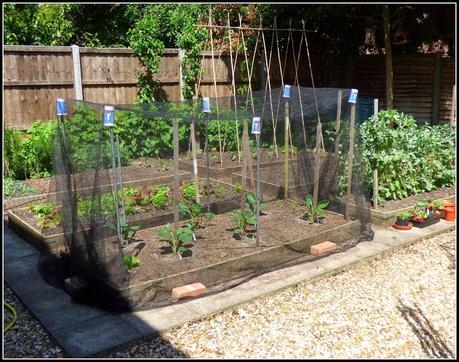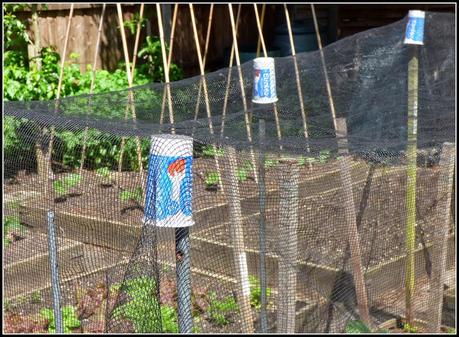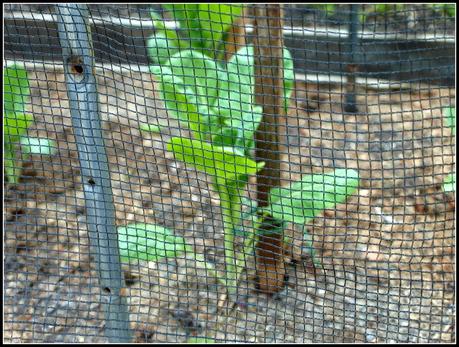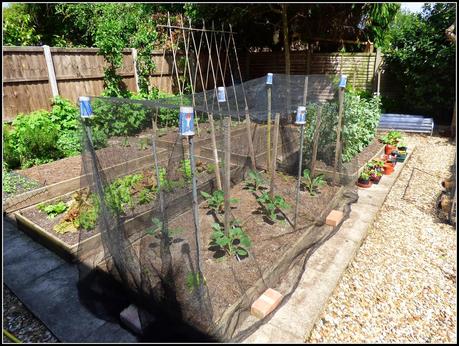Before netting the raised bed, I gave each plant a stout stake, to which I will attach them as they grow bigger. At each corner of the bed, and half-way along the long sides I hammered in more stakes, this time longer than the plant-support ones. These are for supporting the netting. In theory the net, which is made of knitted polythene, is light enough to be supported by the plants themselves. However, I don't like that idea, because I feel it would be bound to cause them some stress or damage, and of course it would mean that Butterflies could lay their eggs through the netting. I have therefore draped the net over the six taller stakes, each one of which is topped with an empty Elmlea pot to stop the net snagging on the rough wood or metal.

I didn't have enough long wooden stakes, so I used some I made from the arms of an old rotary washing-line. They work very well, and in fact they are easier to hammer in, since they are slimmer than the chunky wooden ones.

Close-up of the stakes topped with plastic pots
The mesh of this net has a diameter of about 5mm, which will stop Butterflies getting in, but I think it would also deter all but the most determined bees as well. Fortunately the Brussels Sprouts don't require the services of bees...

You will notice that I have weighted-down the edges of the net with bricks. Those bricks are invaluable. I don't know how I would manage without them!

